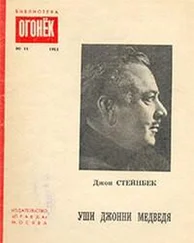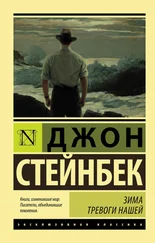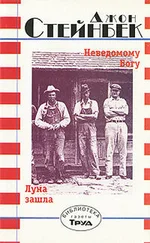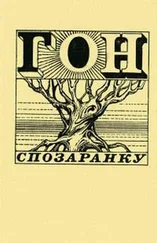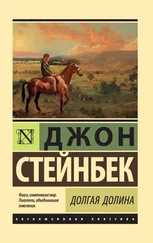Джон Стейнбек - Cup of Gold [Золотая чаша]
Здесь есть возможность читать онлайн «Джон Стейнбек - Cup of Gold [Золотая чаша]» — ознакомительный отрывок электронной книги совершенно бесплатно, а после прочтения отрывка купить полную версию. В некоторых случаях можно слушать аудио, скачать через торрент в формате fb2 и присутствует краткое содержание. Год выпуска: 1929, Жанр: Прочие приключения, на английском языке. Описание произведения, (предисловие) а так же отзывы посетителей доступны на портале библиотеки ЛибКат.
- Название:Cup of Gold [Золотая чаша]
- Автор:
- Жанр:
- Год:1929
- ISBN:нет данных
- Рейтинг книги:5 / 5. Голосов: 1
-
Избранное:Добавить в избранное
- Отзывы:
-
Ваша оценка:
- 100
- 1
- 2
- 3
- 4
- 5
Cup of Gold [Золотая чаша]: краткое содержание, описание и аннотация
Предлагаем к чтению аннотацию, описание, краткое содержание или предисловие (зависит от того, что написал сам автор книги «Cup of Gold [Золотая чаша]»). Если вы не нашли необходимую информацию о книге — напишите в комментариях, мы постараемся отыскать её.
Cup of Gold [Золотая чаша] — читать онлайн ознакомительный отрывок
Ниже представлен текст книги, разбитый по страницам. Система сохранения места последней прочитанной страницы, позволяет с удобством читать онлайн бесплатно книгу «Cup of Gold [Золотая чаша]», без необходимости каждый раз заново искать на чём Вы остановились. Поставьте закладку, и сможете в любой момент перейти на страницу, на которой закончили чтение.
Интервал:
Закладка:
"You will sell me the captaincy of the Ganymede."
Now Grippo was wary.
"The Ganymede is worth much more," he said firmly. "But I do not want to buy the ship-only the captaincy. Look, Grippo! I'll make this compact with you. I will give you five hundred pounds for a half interest in the Ganymede, and all of her command. Then we will put to sea. I think I know how to win plunder if there be no interference in my company. Grippo, I will give you a writing to this effect. If I fail in one single undertaking in the Ganymede, then you shall have the whole ship back, and you shall keep the five hundred pounds."
Grippo still looked into his empty cup, but suddenly he was filled with excitement.
"Give me money," he cried out. "Quick! give me the money." Then-"Oloto! Oloto! bring white wine-white wine-for the love of Christ."
CHAPTER III
THERE were many glittering reputations along the coast of Darien and among the green Caribbean islands when Henry Morgan came to be a buccaneer. In the wine shops of Tortuga were tales of a thousand fortunes made and spent, of fine ships taken and sunk, of gold and plate dumped on the docks like wood.
The Free Brotherhood had grown to be a terrible thing since Pierre le Grand and a little band of hunters slipped out of the woods of Hispaniola and captured the Vice-Admiral of the plate fleet from a canoe. France and Britain and Holland had seen in these islands a good hermitage for their criminals, and for years they had unloaded worthless human freight on the Indies. There was a time in those old nations when any one who could not give a good, virtuous account of himself was crammed into a ship and sent off to be a bond-servant to any man who would pay a small sum for him. And when their time was up, these people stole guns and warred on Spain. It was not strange, for Spain was Catholic and rich, while Huguenots and Lutherans and Church of England men were poor and out at heel. They fought a holy war. Spain had locked up the treasures of the world. If poor, mined beggars could be reaching a coin through the keyhole, who was the worse for it? Who minded except Spain? Surely England and France and Holland took little heed of it. Sometimes they provided the pirates with commissions against Aragon and Castile, so that you might come on a man who, ten years before, had been sent out in a prison ship, carrying the style of "Captain by the grace of the King."
Francehad the good of her wayward children at heart, for she sent out twelve hundred women to Tortuga to be the wives of buccaneers. The whole twelve hundred turned to a business more profitable than wifehood immediately they landed, but France could not help that.
They had got their name, these buccaneers, of a time when they were nothing more than cattle-hunters.
There was a way of smoking meat by burning small bits of fat and flesh in the fire. This made the meat more savory than usual. It was called the boucan process, and from it the pirates were named.
But after a time these hunters came out of the woods in little, careful groups; then bands formed, and then whole fleets of eight or ten vessels. And finally thousands assembled in Tortuga, and from that spot of safety buzzed about the flanks of Spain.
And Spain could not combat them. Did she hang ten, a hundred joined their ranks; so she fortified her towns and sent her treasures on the sea under the protection of warships filled with soldiers. The numberless vessels of the Spanish colonies were nearly all driven from the sea by the fierce buccaneers.
Only once a year did the plate fleet sail out for home.
There were fine names among the Brotherhood, and exploits to make Henry Morgan squirm with jealousy if he had not been so confident of overshadowing them all one day.
Bartolomeo Portugues there was, who took a great prize. But before he could get away with it, he was captured near Campeche. The gibbet was erected on the shore for his hanging. He watched them put it up from his prison aboard ship. And in the night before his execution, he stabbed his guard and swam away, supported by a keg. Before eight days had passed, he came again with pirates in a long canoe and stole the same ship away from theharborof Campeche. He lost her, of course, in a storm off Cuba, but the story was, nevertheless, told with glee in the taverns.
Roche Braziliano was a Hollander with a chubby face. When he was young he was driven from Brazil by the Portuguese, and from their colony he had taken his name. Curiously, he held no rancor against Portugal. His hatred turned on Spain. He was a kindly, gentle, beloved captain, so only there were no Spaniards about. His men worshiped him, and drank no other toast but to his name. Once, when his ship was wrecked in Castilla de Oro, he killed most of a troop of Spanish horse and used their beasts to ride off on. When the men of Spain were near him, Roche was a foaming beast. It was told that once he roasted prisoners on green spits over a slow fire.
As the rich shipping was driven from the sea, the buccaneers must be taking villages, and then even towns with forts. Lewis Scot pillaged Campeche and left it a black, smoking pile.
L'Ollonais had come from the Sables d'Ollone, and very rapidly he became the most feared man in the western ocean. He began with a real hatred for Spain and ended with a strong love of cruelty. He had pulled out tongues, and carved his prisoners to pieces with his sword. The Spanish men would far rather have met the devil in any form than L'Ollonais. The whisper of his name emptied the villages in his path of every living unit. It was said that the mice fled to the jungle when he came. Maracaibo he took, and New Gibraltar, and St. James de Leon. Everywhere he slaughtered men for the fierce love of it.
Once, when the blood lust was in him, he had commanded that eighty-seven prisoners be bound and laid in a row on the ground. Then he walked down the line, carrying a whetstone in one hand and a long sword in the other. That day he cut off eighty-seven heads with his own hand.
But L'Ollonais was not content with murdering the Spanish men. He went into the gentle country of Yucatan, where the people lived in ruined stone cities, and where the virgins went crowned with flowers. They were a quiet people in Yucatan, and their race was dying in an inexplicable decay. When L'Ollonais went away, the cities were heaps of stones and ashes, and there were no crowns any more.
The Indians of Darien were different; fierce, and fearless, and unrelenting. The Spaniards called them Bravos and swore that they were untamable. They had been friends of the pirates because they so hated Spain, but L'Ollonais robbed them and murdered the tribesmen. These Indians waited many years for their vengeance, and at last they caught L'Ollonais when his ship had wrecked on the shores of their country. They built a fire and danced for hours, and then they burned the Frenchman's body bit by bit before his eyes, a finger and a pinch of flesh at a time.
A lean French gentleman came into a tavern at Tortuga one night, and when they asked his name, seized a large rum keg and hurled it from him.
"Bras de Fer," he said, and no one ever questioned him farther. It was never known whether his name was hidden for a shame or a sorrow or a hatred, but all the Coast came to know of him as a great, brave captain.
These were men who made phrases to be repeated.
"No prey, no pay," the Exterminator had bawled, and now every one was saying it. When Captain Lawrence, in a small boat, was assailed by two Spanish frigates, he said to his men, "You have too much experience not to be sensible of your danger, and too much courage to fear it." This was a fine saying, and on the strength of it his followers captured the two Spanish ships and took them home to Goaves.
Not all were cruel or even violent men. Some had a curious streak of piety. There was Captain Watling who made it a point to hold divine service every Sabbath, with the whole crew standing uncovered.
Читать дальшеИнтервал:
Закладка:
Похожие книги на «Cup of Gold [Золотая чаша]»
Представляем Вашему вниманию похожие книги на «Cup of Gold [Золотая чаша]» списком для выбора. Мы отобрали схожую по названию и смыслу литературу в надежде предоставить читателям больше вариантов отыскать новые, интересные, ещё непрочитанные произведения.
Обсуждение, отзывы о книге «Cup of Gold [Золотая чаша]» и просто собственные мнения читателей. Оставьте ваши комментарии, напишите, что Вы думаете о произведении, его смысле или главных героях. Укажите что конкретно понравилось, а что нет, и почему Вы так считаете.
![Джон Стейнбек Cup of Gold [Золотая чаша] обложка книги](/books/181372/dzhon-stejnbek-cup-of-gold-zolotaya-chasha-cover.webp)
